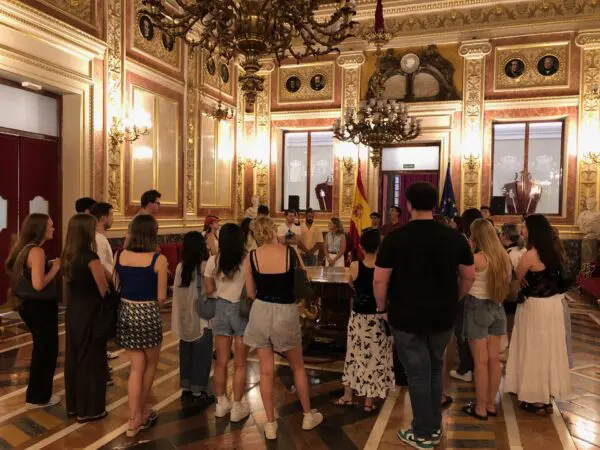
Madrid, Spain
A Multidisciplinary Approach to Climate Change
When:
13 July - 24 July 2026
Credits:
6 EC
Read more
Environmental Studies
When:
18 August - 25 August 2024
School:
Institution:
Lassalle Institut, Newman Institute (Uppsala), Centre for Development and Environment (CDE) & Co.
City:
Country:
Language:
English
Credits:
4 EC
Fee:
590 CHF

The course aims to give students and other participants a fundamental understanding of how knowledge and experience can enter into dialogue with their distinctive approaches. Students will engage in a holistic and multi-didactic process (lectures, workshops, excursions, groupwork, fireside talks, panel discussions, etc.). The lectures and workshops are held by experts in socioeconomics, ecology, environmental economics, politics, ecological engineering, logistics and other fields. In this way, the course will give participants an insight into transdisciplinarity and transformative learning.
Combined course with diversity of professors and experts.
Bachelor’s degree students.
Educational goals
After having completed the course the students are expected to be able to:
• Display a general understanding of contemporary debates within environmental studies.
• Exhibit knowledge of the concepts of interdisciplinarity and transdisciplinarity used in
contemporary ecological discourses.
• Display a general understanding of various responses to environmental and global
sustainability challenges.
• Relate the notion of individual transformation to community transformation and social
change.
• Critically reflect on the connection between different aspects of the environmental crisis,
such as sociological, technological, economic, legal, or agricultural.
• Critically reflect on one’s identity and socio-cultural standing as it relates to consumption,
lifestyle choices, and sustainable practices.
• Understand the concept of systems thinking and its potential within the environmental
discourse.
Fee
590 CHF, For EU/EES students the summer school is FREE OF CHARGE. However, accommodation, which includes all meals, in rooms with 4-beds accommodation starts from 590CHF.
Fee
720 CHF, Rooms with 2-beds accommodation, including meals, starts from 720CHF.
When:
18 August - 25 August 2024
School:
Institution:
Lassalle Institut, Newman Institute (Uppsala), Centre for Development and Environment (CDE) & Co.
Language:
English
Credits:
4 EC

Madrid, Spain
When:
13 July - 24 July 2026
Credits:
6 EC
Read more

Amsterdam, Netherlands
When:
06 July - 17 July 2026
Credits:
0 EC
Read more

Pisa, Italy
When:
06 July - 11 July 2026
Credits:
3 EC
Read more